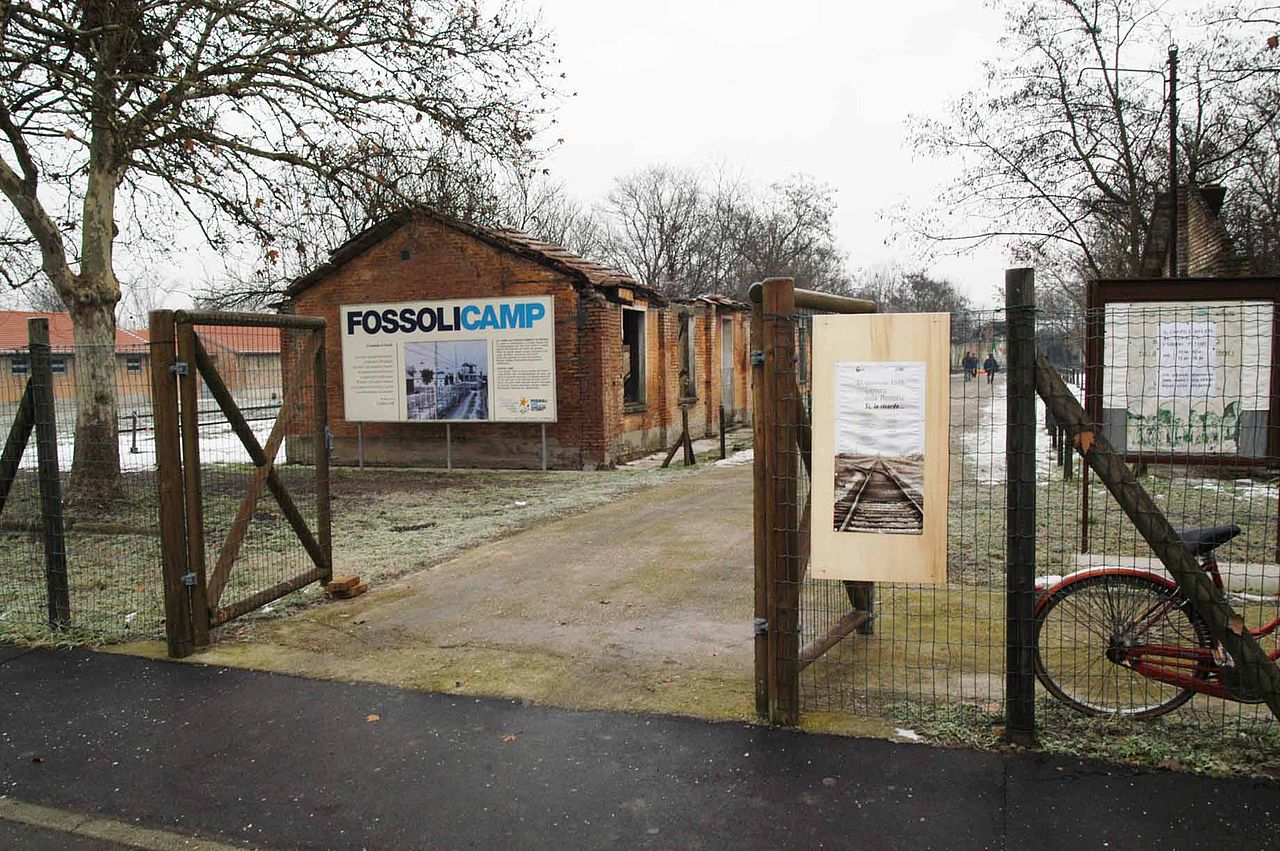
The Fossoli Camp, located near Carpi in the province of Modena, Italy, has a complex history spanning from 1942 to 1970, with various phases of use. Originally built on two contiguous areas, the camp was active as a prisoner of war camp, a concentration camp for Jews, a police and transit camp, and later as a center for collecting forced labor for Germany.
In July 1942, the Italian Ministry of War established the camp as “Campo prigionieri di guerra n. 73” (Prisoners of war camp n° 73) to house Allied soldiers and non-commissioned officers captured in North Africa. This function continued until September 8, 1943, when the Germans occupied the camp and deported the prisoners to Germany.
From December 5, 1943, to March 15, 1944, under the Italian Social Republic, the camp served as a concentration camp for Jews, identified as one of the sites for concentrating Italian and foreign Jews who had been stripped of their civil and political rights. The first convoy to Auschwitz departed on February 22, 1944, including the renowned Italian Jewish writer Primo Levi among the over 600 deportees.
The camp then transitioned to a German police and transit camp from March 15, 1944, to early August 1944. It housed Jews and political opponents destined for deportation to Germany. The dual management of the camp by the SS and the Italian authorities made the reconstruction of events and investigation of deportees from Fossoli complex.
After the liberation of Rome and Florence, the camp’s operations shifted north. At least six convoys of Jews and a large convoy of political deportees left the camp for concentration camps like Mauthausen and its subcamps. Approximately 2,800 Jews passed through Fossoli during this period, most destined for Auschwitz or Bergen-Belsen.
Post-war, the camp served various purposes, including as a collection center for forced labor for Germany, a refugee camp, and a village for Giulian-Dalmatian refugees. The last phase of occupation ended in 1970, and the site fell into decay.
Today, the Fossoli Camp is managed by the Fondazione Fossoli. The site includes the historical Campo di Fossoli, the Museo Monumento al Deportato, and the complex of former synagogues in Carpi. The foundation aims to preserve the memory of the camp’s history and educate future generations about the atrocities of the 20th century.
Via Remesina Esterna, 32, 41012 Fossoli MO, Italy
https://www.visitmodena.it/en/discover-modena/art-and-culture/museums-archives-and-libraries/places-of-memory/ex-fossoli-concentration-camp